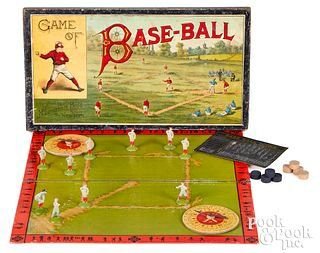Board games have evolved significantly over time. From ancient classics like Chess and Go to modern innovations like Settlers of Catan and Codenames, the landscape of board games has transformed. How have board games changed over time? Let’s explore the fascinating journey of these tabletop treasures. With advancements in technology, game design, and changing preferences, board games continue to captivate players of all ages. Join us on this enlightening exploration of the ever-changing world of board games.
How Have Board Games Changed Over Time
Board games have been a source of entertainment for centuries, bringing friends and family together for fun and friendly competition. The evolution of board games over time reflects changes in society, technology, and popular culture. Let’s take a journey through the history of board games and explore how they have evolved to become the diverse and dynamic games we know today.
The Early Origins of Board Games
Board games have a rich history that dates back thousands of years. Some of the earliest known board games were played in ancient Egypt and Mesopotamia. These early games were often carved into stone or clay and served as entertainment for both adults and children. One of the oldest board games, Senet, was played in ancient Egypt over 5,000 years ago.
As civilizations developed and trade routes expanded, board games spread to different parts of the world, each culture adding its unique twist to game designs. From the Royal Game of Ur in ancient Mesopotamia to the Chinese game of Go, board games became a way to pass the time, test strategic thinking, and socialize with others.
The Industrial Revolution and the Rise of Modern Board Games
With the advent of the Industrial Revolution in the 19th century, board games underwent significant changes. The introduction of mass production techniques allowed for the mass distribution of board games, making them more accessible to a wider audience. Games like Snakes and Ladders and Parcheesi gained popularity during this time, with their simple rules and colorful boards attracting players of all ages.
One of the most iconic board games of the 20th century, Monopoly, was created during the Great Depression as a way to provide entertainment and escapism during tough economic times. Its success paved the way for the modern board game industry, inspiring a wave of new game designers to create innovative and engaging games.
The Digital Age and the Rise of Video Games
As technology advanced in the late 20th century, board games faced stiff competition from video games and digital entertainment. Many feared that traditional board games would become obsolete in the age of digital gaming. However, board game designers embraced technology and found ways to incorporate digital elements into their games, creating hybrid experiences that appealed to a new generation of gamers.
Games like Settlers of Catan and Ticket to Ride brought fresh ideas to the board game world, incorporating elements of strategy, resource management, and collaboration. These modern board games appealed to both casual players and hardcore enthusiasts, revitalizing interest in tabletop gaming.
The Renaissance of Board Games in the 21st Century
In recent years, board games have experienced a renaissance, with a surge in popularity and creativity. The rise of crowdfunding platforms like Kickstarter has enabled independent designers to bring their visions to life, leading to a wave of innovative and unique board games hitting the market.
From cooperative games like Pandemic to deck-building games like Dominion, the modern board game landscape offers a diverse range of genres and play styles. Board game cafes and conventions have also sprung up around the world, providing social spaces for gamers to gather, play, and connect with others who share their passion for tabletop gaming.
The Future of Board Games
As we look to the future, the possibilities for board games seem endless. Advances in technology, such as augmented reality and artificial intelligence, are opening up new avenues for game designers to explore. Virtual tabletop platforms are also making it easier for players to connect and play with others remotely, breaking down barriers of distance and location.
Board games continue to evolve and adapt to the changing needs and interests of players. Whether you enjoy classic games like Chess and Scrabble or prefer modern titles like Catan and Codenames, there is a board game out there for everyone. The enduring appeal of board games lies in their ability to bring people together, foster creativity, and provide endless hours of entertainment.
So next time you gather around a table to play a board game, take a moment to appreciate the rich history and evolution of these timeless games. From ancient civilizations to the digital age, board games have stood the test of time and continue to captivate players of all ages. Let the dice roll and the cards fly – the world of board games is waiting to be explored!
How Have Board Games Changed Over Time? – The Board Game Xpert
Frequently Asked Questions
How have board games evolved over the years?
Board games have evolved significantly over time, adapting to changes in society, technology, and consumer preferences. Early board games were simple and often based on luck, while modern board games incorporate complex strategies, themes, and mechanics to engage players.
What role has technology played in the transformation of board games?
Technology has played a vital role in revolutionizing board games. Digital platforms and apps have brought new opportunities for interactivity, online gameplay, and augmented reality experiences, transforming how players interact with board games.
How have themes and designs of board games changed over the decades?
Board games now feature a wide range of themes and designs, catering to diverse interests and demographics. From traditional themes like fantasy and mystery to innovative concepts based on popular culture, board games today offer a variety of immersive experiences for players.
Final Thoughts
Board games have evolved significantly over time. From ancient classics like Chess and Backgammon to modern strategy games like Catan and Ticket to Ride, the variety and complexity of board games have grown. The introduction of technology has also transformed board games, offering online versions and interactive components. How have board games changed over time? They have become more diverse, inclusive, and engaging, catering to a wider audience and incorporating innovative mechanics. Overall, board games continue to adapt and thrive, reflecting societal trends and technological advancements.




